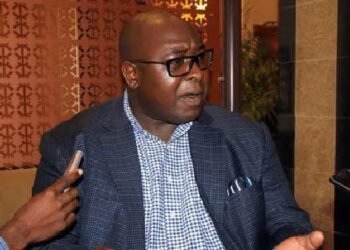WE ARE IN A CRISIS
HH doesn’t know where he’s taking us – M’membe
By Mast Reporter
ZAMBIANS have found themselves in the most difficult and dangerous situation now because President Hakainde Hichilema has lost direction and doesn’t know where he is taking the country, Socialist Party president Dr Fred M’membe has said.
Dr M’membe, the 2026 SP presidential candidate, said Hichilema appeared to be in control of the country but had lost direction.
He said Zambians were worried about the missed opportunities the country had recorded under Hichilema.
“It’s very clear that Mr Hakainde Hichilema and his UPND government don’t know where they are headed, and that is very dangerous. Their greatest achievement is directionless leadership. Mr Hichilema appears to be in control, but no one knows where he is leading,” he said.
Dr M’membe said Zambia was in a crisis, and it was high time the UPND government paid attention to the challenges the people of Zambia were complaining about.
“But few people have been consistently wrong on all the great issues that faced our nation over the last half-decade, as Mr Hichilema has. Blunders are everywhere. Wherever one turns, there’s a crisis – the body, electricity, diesel, soccer, cost of living, health services and so on and so forth,” he said.
Dr M’membe said the crisis created by the UPND administration was deeper than any propaganda it was creating.
He said all sectors of society were in a crisis.
At the rate things were moving, there might be no Zambia at all to talk about after next year.
“Today, there’s a very serious crisis at NHIMA [National Health Insurance Management Authority] threatening the lives of so many people. At the rate they are mismanaging NHIMA, it will become very difficult to rescue it, even by a new government. The failure to pay hospitals is a symptom of deeper misgovernance and gross incompetence on the part of Mr Hichilema and his UPND government,” Dr M’membe said.
He said NHIMA had failed under the UPND.
“NHIMA has too many internal ailments; no interest and capacity to collect contributions and, sadly, absent is cost control. Instead of increasing collections, they removed key diseases from their list. Instead of deploying collection systems, they are now delaying paying private hospitals. Instead of finding innovative medical equipment financing methods, they are directly procuring medical equipment, paying huge upfront sums thereby taking money meant to pay claims to private hospitals,” he said.
“In the original design of NHIMA, with universal access to quality health care at the core, private health facilities were critical players. Because of their ability to expand quickly and offer better quality than public health facilities, it incorporated a 30-day FIFO ( First In First Out) robust claims payment system. All these seem to have been abandoned. It also incorporated effective claims fraud detection, prevention and management protocols. Again, these were diluted, and we saw the blame shifted to private health facilities,” Dr M’membe said.
























